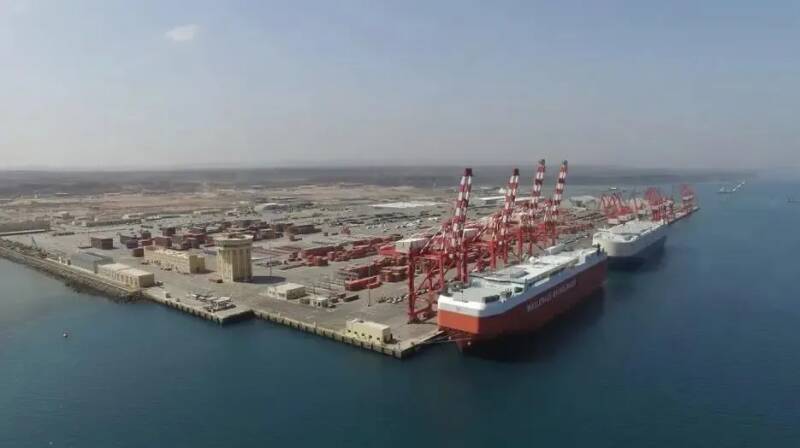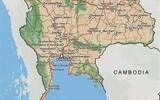Ethiopia's coffee exports have been reduced due to many impacts!
It is reported that Ethiopia's coffee industry is facing serious export problems. For a long time, since Ethiopia is a landlocked country, Ethiopian coffee exports mainly rely on the port of Djibouti in neighbouring Djibouti.

However, because the port is located between the Red Sea and the Gulf of Aden, it is deeply affected by the Red Sea crisis, and after the outbreak of the Red Sea crisis, the global shipping giants have decided to make a detour to the Cape of good Hope, resulting in fewer ships calling at the port of Djibouti.
And the situation in the Red Sea has been escalating recently. in early May, the Houthi issued a new statement to expand the scope of the attack, such as the Red Sea, the Arabian Sea, the Indian Ocean and the Mediterranean Sea to crack down on all ships dealing with Israel, regardless of their nationality and where the target port is.

The statement could lead shipping companies to choose to bypass routes in the area or stop shipping on that route. This has seriously affected the export of Ethiopian coffee and it is reported that many coffee beans are currently stranded in the port of Djibouti because there are no vessels for export.
In order to solve this problem, the Ethiopian government can only choose other ports for export, and to this end, the Ethiopian government has chosen neighboring Somalia. Earlier, Ethiopia signed a memorandum of understanding with the local government of Somaliland in northern Somalia to recognize Somaliland as an independent state in exchange for the right to use the port of Berbera.
However, little progress has been made since the signing of the memorandum of understanding in January, as the Somali Government believes that the agreement violates its sovereignty and escalates the situation in the region. As a result, Ethiopia is still unable to use the agreed port of Berbera, and the deterioration of relations with the Somali State has led to the inability to use other Somali ports, affecting Ethiopia's coffee exports.
Recently, however, the Turkish Foreign Ministry said it had hosted diplomats from Ethiopia and Somalia, and the three sides signed a joint statement after frank, friendly and forward-looking talks on their differences. And held another round of talks in Ankara on September 2. The ministers of Somalia and Ethiopia reaffirmed their commitment to resolve their differences peacefully.
In addition, according to the analysis of local Ethiopian exporters, other neighbouring countries, such as Eritrea and Sudan, have ports, but they are still affected by the Red Sea crisis because of their location in the Red Sea region. The port of Mombasa in Kenya is located at the southern tip of Kenya, and it used to be a long way across Kenya from Ethiopia, which also increases the time and cost of export.
According to data from the Ethiopian Coffee and Tea Administration, in the first 10 months to May this year, Ethiopia exported 209000 tons of coffee, with export revenue exceeding 1 billion US dollars, but decreased compared with 290000 tons and 1.7 billion US dollars in the same period last year.
Moreover, recently, Ethiopia has been in a situation of internal conflict, with a number of kidnappings, conflicts and other incidents taking place in the Ethiopian capital Addis Ababa and areas outside the south of the country. Therefore, recently, coffee traders and bean hunters have reduced or stopped going to the country and began to focus on other coffee-producing countries in Africa, which is not conducive to the development of Ethiopian coffee industry. affect the influence of Ethiopian coffee in the international market.
Important Notice :
前街咖啡 FrontStreet Coffee has moved to new addredd:
FrontStreet Coffee Address: 315,Donghua East Road,GuangZhou
Tel:020 38364473
- Prev

Introduction to Miao Coffee Estate, the 2024 Thailand Excellence Cup COE Champion
In Asia, there are suitable geographical environment and other conditions, and the Asian continent spans the three cold, warm and hot zones, with complex and diverse climate types. Therefore, many countries in Asia grow coffee, such as Yunnan, Vietnam, Thailand, Indonesia, etc. The history of coffee in Thailand dates back to the end of the 19th century, when Thailand was in Rama
- Next

Market equipment?! The MStand knitting bag was requisitioned by my mother!
▲ Click to pay attention| Daily Boutique Coffee Culture Magazine Coffee Factory The day before yesterday, the chain brand Mstand launched a new product, Blackberry Bubble American style. At the same time, it updated its surroundings and added new out-of-street equipment woven bags, making fans call Mstand not only a coffee seller, but also a luggage factory that grasps users 'preferences
Related
- What grade does Jamaica Blue Mountain No. 1 coffee belong to and how to drink it better? What is the highest grade of Blue Mountain coffee for coffee aristocrats?
- What are the flavor characteristics of the world-famous coffee Blue Mountain No. 1 Golden Mantelin? What are the characteristics of deep-roasted bitter coffee?
- Can I make coffee a second time in an Italian hand-brewed mocha pot? Why can't coffee be brewed several times like tea leaves?
- Hand-brewed coffee flows with a knife and a tornado. How to brew it? What is the proportion of grinding water and water temperature divided into?
- What is the difference between Indonesian Sumatra Mantinin coffee and gold Mantinin? How to distinguish between real and fake golden Mantelin coffee?
- What does bypass mean in coffee? Why can hand-brewed coffee and water make it better?
- Unexpected! Ruixing Telunsu lattes use a smoothie machine to foam milk?!
- % Arabia's first store in Henan opens into the village?! Netizen: Thought it was P's
- Does an authentic standard mocha coffee recipe use chocolate sauce or powder? Mocha Latte/Dirty Coffee/Salty Mocha Coffee Recipe Share!
- What is the difference between Vietnam egg coffee and Norway egg coffee? Hand-brewed single product coffee filter paper filter cloth filter flat solution!

